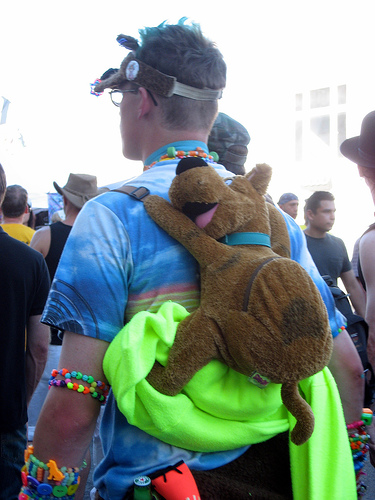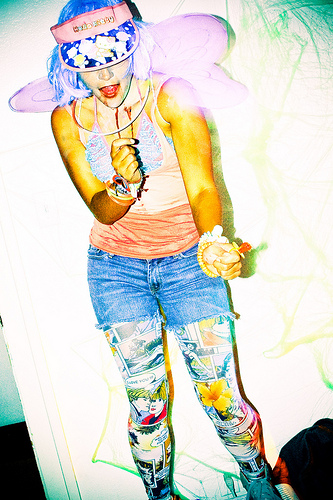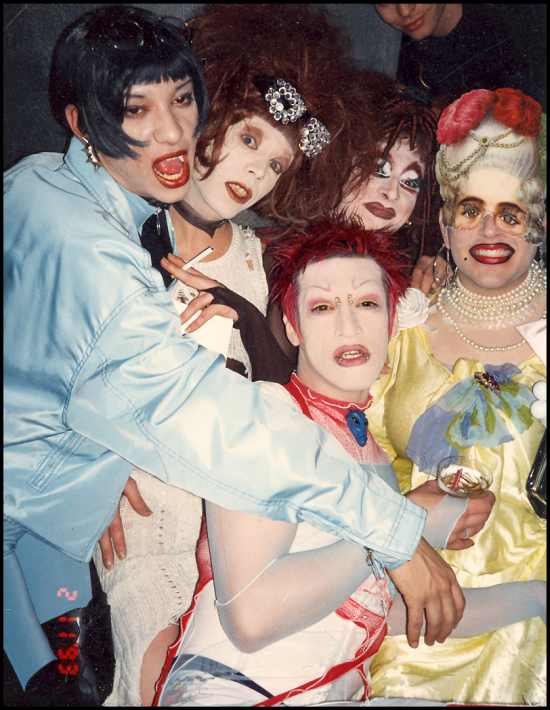 My children always get me lovely Mother’s Day gifts. I’m excited to discover what gifts I will be able to open with my breakfast in bed Sunday. Today I learned that my children gave me a great gift on the day of their birth: I became smarter.
My children always get me lovely Mother’s Day gifts. I’m excited to discover what gifts I will be able to open with my breakfast in bed Sunday. Today I learned that my children gave me a great gift on the day of their birth: I became smarter.
Funny, after all of my children were born, I didn’t feel smarter. In fact, I felt downright stupid as my memory seemed shot from the lack of sleep. Little did I know that my maternal hormones were actually causing my brain to increase in size.
brains
 Well hello there, zombie enthusiasts. Were you as excited as I was for The Walking Dead Christmas Special: A Zombie In A Pine Tree? What? You missed it? No worries, I recapped it for you. Consider it a belated holiday present. Continue reading
Well hello there, zombie enthusiasts. Were you as excited as I was for The Walking Dead Christmas Special: A Zombie In A Pine Tree? What? You missed it? No worries, I recapped it for you. Consider it a belated holiday present. Continue reading
Sometimes the subways melt together, fuse, split apart and rise again, utterly different. Sometimes it happens slowly, and sometimes it happens in the course of a single stop.
Sometimes, Manhattan’s fabled street grid shifts, or tilts, making north become east and east become south.
My brain doesn’t accept direction, or distance, or shapes, or numbers the way most people’s brains do. In most people, there is an instinctual sense of direction. In me, there is not. I’m learning disabled in spatial relationships, affecting how I deal with things in space and time, and how I process non-verbal information. I can’t tell my left from my right unless I’m wearing my watch, which I understand, because I’ve memorized this fact, is on my left wrist. Even then, I have to think about it for a second. This was the main reason I didn’t learn to drive until I was twenty-two, after failing one drivers’ test and then getting a good word from a State Trooper friend whose barracks regularly got cookies from me in my reporting days.
The constant flogging from teachers and parents when it came to my math problems: You’re not trying hard enough. You’ve got to pay attention. I didn’t understand how crying at my desk wasn’t trying hard enough. It started with the shoes — all my classmates in first grade could tie their laces. I was still figuring it out in third grade. Thank God the mid-eighties Velcro trend kicked in. That only helped if I could put the damn things on the proper foot. Even now, at thirty-seven, I mark all my boots with a Sharpie so the left one doesn’t go on the right.
The problems were not officially noticed until I was in my second round of pre-algebra in high school. The teacher was your classic arithmetic teacher with chalk dust covering his pants and crooked glasses on his end of his nose kind of person and found it unusual that the editor of the high school paper was in the same math classes as the kids who showed up twice a week. I was sent to the school shrink (hysterically named Dr. Brain) who sat me down and asked me to put a simple puzzle of an elephant together.
I couldn’t do it.
“I don’t know how you’ve gotten this far,” he said. I was about to enter my senior year of high school, too late for remedial training, unless the school system kept me back a year. I had already been accepted to Emerson College, which openly said it did not care about a journalism major’s math scores.
I’ve learned to get around. I plot a trip to the mall like a Marine launching an offensive in Afghanistan. I play word association games to remember my parking spaces. (Section F is for a FANTASTIC space!) I make friends with mannequins upon mall entry, remembering their outfits as my entry/exit points. I go out of my way to use, say, the escalator by the tacky indoor waterfall to help remember my route through the retail wasteland, since the mall maps mean nothing to me. I feel my way though like a firefighter in a building filled with thick smoke, searching by hand, by touch, for The Body Shop.
I have gotten lost in giant Targets and Walmarts, desperately pawing through knockoff handbags for whomever may be my shopping companion. My mother still thinks it’s a riot to move her carriage over a few aisles and see if I’ll figure it out. We’ll see who’s laughing when Nursing Home Time comes.
At home, I foolishly refuse to accept my limitations, attempting to assemble cheap furniture and managing to put it together upside down and backwards. My husband, ever kind and patient, takes it apart and assembles it properly.
You’ll probably see me, the only person in Manhattan taking a compass out of her bag to figure out where she is in Midtown. Or maybe confused in a hospital, lost going to the doctor I’ve seen dozens of times. Or maybe in my own neighborhood, somewhat discombobulated having gotten off at the wrong subway exit and launched myself south instead of north. You’ll see me in a restaurant, using a tip calculator on my Blackberry to figure out a twenty percent tip on a ten dollar bill. I might show up for work when I’m not scheduled, because I have trouble absorbing the spreadsheet grid that spells out the shifts. Don’t laugh. Don’t yell. I’ll get it.
I’ll get there.
So apparently scientists finally got around to doing some of their sciencey experiments on the brains of a large group of people who’ve probably spent the past 15 years listening to nothing but Prodigy’s “Fat of the Land” album (which is to say, heavy users of MDMA — the drug commonly known as ecstasy).
They found that ecstasy isn’t nearly as bad for the brain as previously thought.
The study was led by a Harvard Medical School professor and funded by the Natiional Institute on Drug Abuse. Its findings were reported in last week’s issue of Addiction, because I know you’re probably a regular subscriber to that. According to the study’s lead researcher, past studies had been affected by studying subjects who liked ALL drugs not just ecstasy, which skewed the results:
The resulting experiment whittled down 1,500 potential participants to 52 selected users, whose cognitive abilities matched those of a group of 59 non-users. “We even took hair samples of participants to test whether they were telling the truth about their drug and alcohol habits,” said Halpern. “Essentially we compared one group of people who danced and raved and took ecstasy with a similar group of individuals who danced and raved but who did not take ecstasy. When we did that, we found that there was no difference in their cognitive abilities.”
So on one hand, we have a new wide-scale study showing that ecstasy doesn’t turn your brain into delicious Jell-O Pudding Pops.
On the other hand…..



